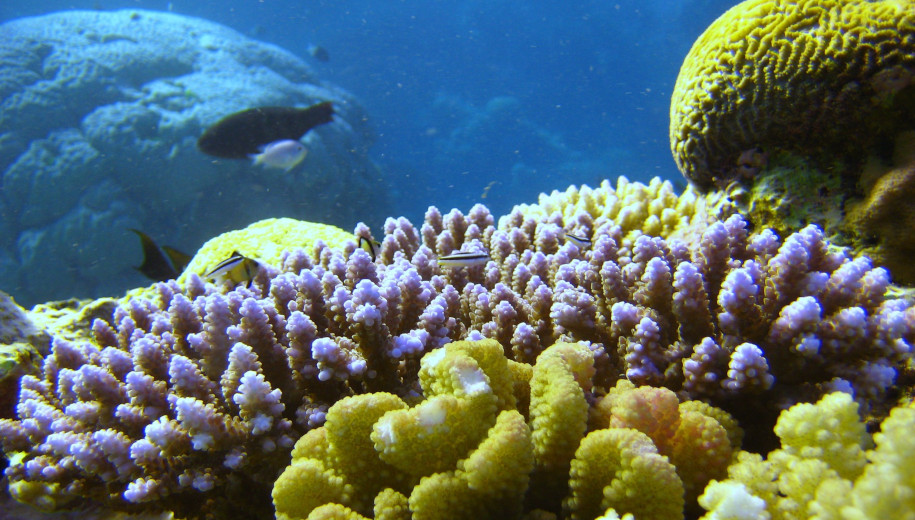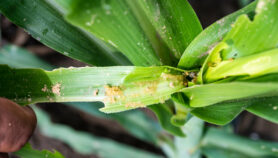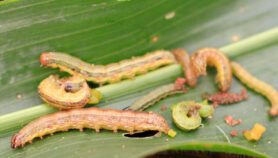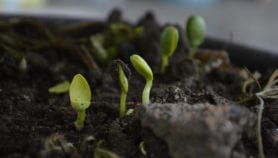22/10/21
Reef biodiversity helps endangered corals survive

By: Claudia Caruana
Send to a friend
The details you provide on this page will not be used to send unsolicited email, and will not be sold to a 3rd party. See privacy policy.
[NEW YORK] Damaged or dying coral reefs have a better chance of survival if other coral species are added to improve biodiversity, says a study published this month in Science Advances.
Coral reefs are under threats worldwide ranging from destructive fishing practices to global warming. During the bleaching event of 2015—2016, nearly half of the remaining corals along Australia’s Great Barrier Reef bleached and died.
Study researchers from the Georgia Institute of Technology, Atlanta, found that using as many as six different species worked much better than a single species in “coral gardens”, especially made for the experiments.
Cody Clements, a postdoctoral fellow at the Georgia Institute of Technology’s School of Biological Sciences, said the studies conducted in French Polynesia found that increasing coral richness by ‘outplanting’ a diverse group of coral species improves coral growth and survival rates.
He emphasises that the finding may be especially important in the early stages of reef recovery following large-scale coral loss, and in supporting healthy reefs that in turn support fisheries, tourism, and afford protection from storm surges.
According to Clements, the ecological pendulum can swing the other way in that if more coral species are lost, the resulting effects could threaten the survival of other marine species, resulting in a “biodiversity meltdown”.
“The negative effects on corals often have cascading impacts on other species that call coral reefs home,” Clements tells SciDev.Net. “If biodiversity is important for coral performance and resilience, then a biodiversity meltdown could exacerbate the decline of reef ecosystems that we’re observing worldwide.”
“If biodiversity is important for coral performance and resilience, then a biodiversity meltdown could exacerbate the decline of reef ecosystems that we’re observing worldwide”
Cody Clements, Georgia Institute of Technology
At their study site in Mo’orea, French Polynesia, Clements and his colleague, Mark Hay, planted “coral gardens” with varying species to evaluate the relative importance of beneficial versus competitive interactions among corals as they grow and interact over time.
Earlier experiments involved bringing corals into a lab to “pit species against each other,” says Hay. “Our research focuses on discovering and understanding each of the ways we can manage ecosystems to eco-engineer them to a more resilient state that buys time for reefs to persist until policymakers help get climate change under control. Loss of reefs from global warming is not a future concern, it is happening (now).”
“Species that one might think are competitors and should thus negatively affect each other are often instead facilitating each other — speeding growth and lessening mortality,” says Hay. “This means that as we start to lose some species, it makes it more likely that others will be lost.”
Andrew Hoey, a professorial research fellow at the ARC Centre of Excellence for Coral Reef Studies at James Cook University, in Townsville, Australia, emphasises that very little is known on the effect of coral diversity on key ecological processes.
“This research demonstrates that coral patches containing multiple coral species perform considerably better than patches containing only one species,” Hoey says. “Understanding the relationships between biodiversity and ecosystem function is becoming increasingly important as the world’s ecosystems are facing increasing pressures from climate change and local anthropogenic pressures, and biodiversity is being reduced.”
J. Emmett Duffy, director of the Smithsonian Institution’s Tennenbaum Marine Observatories Network and Marine Global Earth Observatory Programme, tells SciDev.Net that the authors did not directly study climate change, which is difficult to manipulate in such field experiments. “But their results show that having a portfolio of different species living together can reduce the vulnerability of young corals, overgrowth by algae, and tissue mortality.”
“The general message is that biodiversity boosts resilience — we need a portfolio of different species to weather change,” says Duffy. “These results from coral reefs strengthen similar findings in grasslands, forests, agricultural fields, and other ecosystems showing that the benefit of biodiversity is a general and useful rule in ecology and conservation.”
This piece was produced by SciDev.Net’s Asia & Pacific desk.















